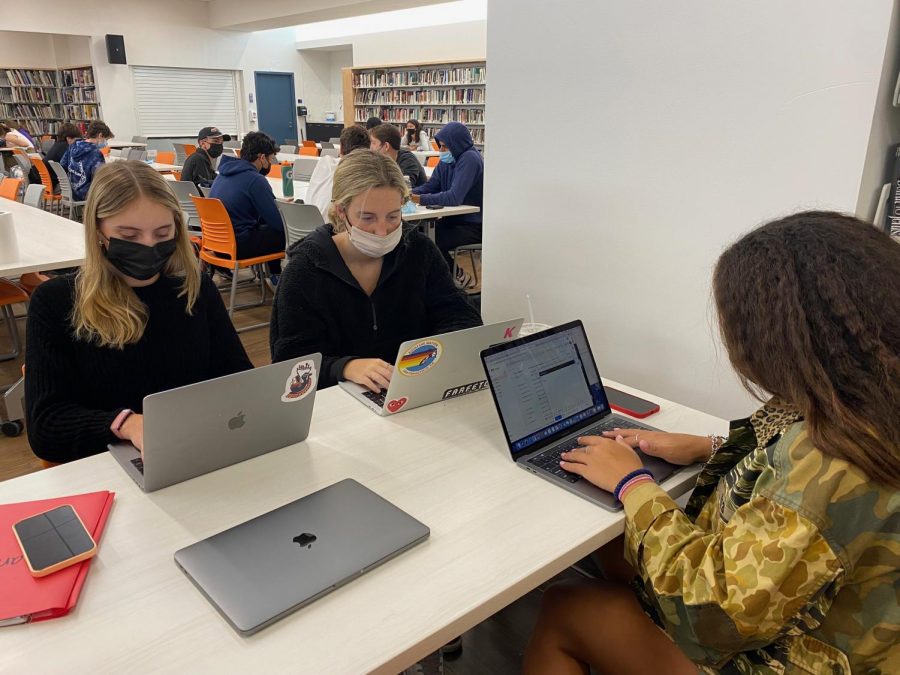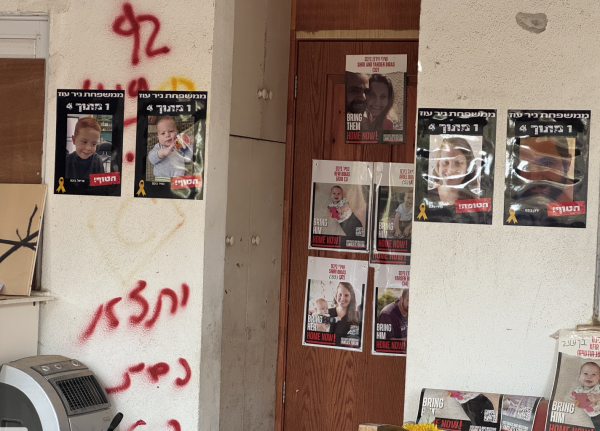LatinAuth? LatinOff. Latin Students Frustrated With Unreliable Wi-Fi
Students and faculty alike are frustrated by Latin’s lackluster Wi-Fi.
Latin’s Wi-Fi problems date back to students’ initial re-entrance to the building during the fall semester of 2020; however, internet issues have become more noticeable this school year. Even though student complaints are often petty, they reveal the bigger issue: Students have been nurtured, promoted, and even required to use laptops as their primary academic resource, so why is the school not fully enabling our devices?
Senior Max Wilkins said, “The outages come and go but only occur at the worst time.” Spotty Wi-Fi impairs learning in various ways, including preventing teachers from projecting onto the screen and not allowing students to access necessary documents. Given that more than 500 students and faculty may try to access the internet through LatinAuth at the same time, some troubleshooting should be anticipated by the community. However, after three months of rearranging coursework, it has become apparent that technology is an absolutely essential instrument in Latin’s academic plans. Furthermore, it’s unreasonable that students can’t utilize this learning platform.
Latin’s academic structure has endorsed the use of advanced technology for students from the earliest ages, starting in the Lower School by providing the youngest students an iPad. Then, in Middle School, students are required to purchase an iPad. In high school, students have to buy a laptop and use it every day, in every class.
Additionally, there’s no question that after a few semesters of virtual learning, students feel the computer is vital. During that time, in fact, it was expected that students would be able to sort through emails for Zoom links, check RomanNet and Canvas, and dredge through SBG Book and TurnItIn regularly.
Shifting from online back to in-person learning was a change of pace for many students, but one way students really seemed to feel that change was through the slow or malfunctioning Wi-Fi. Latin tries to create students who are well-versed with technology, but in practice, Latin can’t support the devices. Is Latin using too much technology for the internet provider? Well, yes.
Senior Eric Ward said, “I believe the disruption can be attributed to a congestion factor.” Too many students and faculty are trying to use LatinAuth at the same time. When there’s a failure of switches or routers on the internet, there are solutions such as relocating Wi-Fi access points. How can you resolve the Wi-Fi outages when it’s caused by too many people? Restrict Wi-Fi from students to reduce the usage at any given time? Expand the system? Purchase a new system altogether?
Interestingly, Latin’s IT Department doesn’t feel the problem is dire. “Specific students may run into problems when they haven’t downloaded the Securely software the school requires to function on LatinAuth, or individual students may be accidentally switching between LatinAuth and Latin Guest, which could be creating that problem,” said Latin’s IT Department. Possibly, students and faculty have been silently complaining about Latin Wi-Fi, meaning this topic hasn’t even reached the table of discussion for the school yet.
How many times are students emailing the IT Department about this issue? Does the student government surface this complaint? Although this problem is readily apparent, there is minimal proactivity around it. In the eyes of the IT Department, there is no problem until students actually vocalize these grievances. Students and faculty need to articulate more formal complaints if change is to happen. And although no student is going to repair the router system, Upper Schoolers do need to draw legitimate attention to Latin’s malfunctioning Wi-Fi to fully take advantage of the elaborate technology Latin employs.
It’s remarkable to see how students at Latin have learned to utilize technology. What else could students accomplish with fully functioning Wi-Fi? To answer this, students and faculty need to raise more sincere complaints to the IT Department. Only then will we be able to see what students can really achieve.



















































